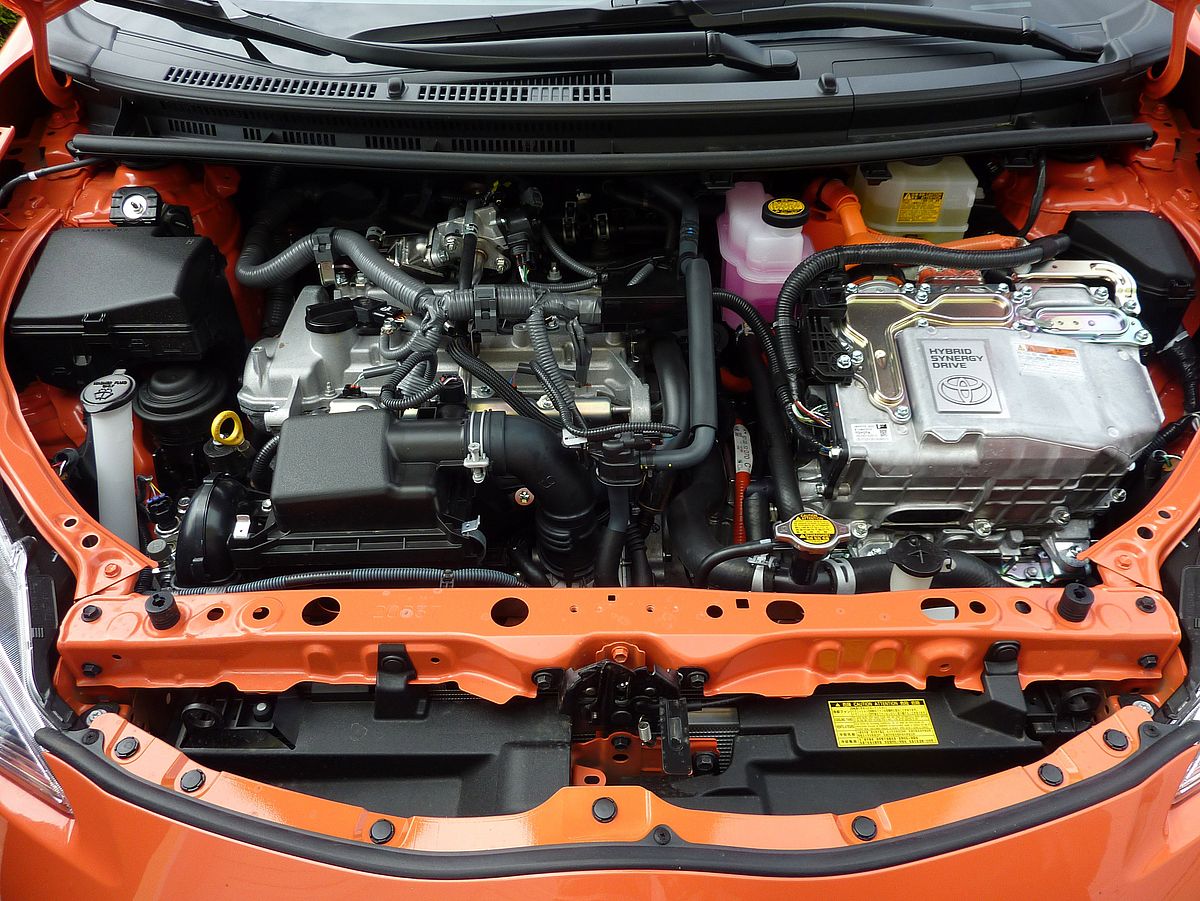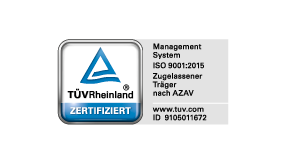Further education study programme for teachers and trainers whose task is to train skilled workers and professionals for a global economy
Training in Automotive Technology
Further Education Study Programme

Training in Automotive Technology
Contact:
Prof. Dr. Dr. hc. Michael Gessler
Institut Technik und Bildung (ITB)
Telefon 0421 - 218 66330
eMail mgesslerprotect me ?!uni-bremenprotect me ?!.de
Current Information:
The program is not currently offered and another run is not being planned at the moment.
Scope:
The further education study programme „Training in Automotive Technology“ was developed and applied within the framework of a joint project of the State of Bremen, the German Society of International Cooperation (GIZ), the Institute Technology and Education (ITB) of the University of Bremen, and the Competence Center of the Chamber of Crafts Bremen (HandWERK gGmbH), in cooperation with the faculty 12 Pedagogy and Educational Sciences of the University of Bremen and the Academy of Continuing Education of the University of Bremen (quality assurance).
The further study programme is a domain-specific study programme in the sector of automotive technology. Germany is a leading automotive manufacturer in the world. The content and problem-solving technologies of the study programme are based on the high German standards and the international body of knowledge in the field of automotive technology.
Target group and didactical approach:
The certificate is aimed at teachers and trainers whose task is to train skilled workers and professionals for a global economy. To bridge these two objectives, development of technical and training competence, an innovative training methodology was used, which is refered to as learning and work assignments.
This training methodology was developed at the Institute Technology and Education (ITB) and is also used in ITB teacher training courses in automotive technology, which are offered regulary to German teachers and trainers at the University of Bremen.
Moduls and Content:
Vocational Didactics and Teaching Methodology:
Learn and Work Assignments (introducation), Role of Teacher and Learner (introduction), Cooperative Learning (introduction), Self-directed Learning (introduction), problem-based learning (introduction), organising group work (introduction), presentation (introduction), feedback (introduction), learning motivation (introduction), self-concept (motivation), culture and values (introduction), saftey and environment (introduction)
Technical and Professional Specialisation:
Engine Oil (Lubrication System Operation), Electrical Fundamentals (Series, Parallel, and Series-Parallel Circuits; Testers and Digital Meters Automotive Wiring and Wire Repair; Wiring Schematics), Battery (Testing and Service), Circuit Testing (Horn, Wiper, and Blower Motor Circuits), Lighting and Signaling Circuits (Lighting System Diagnosis), Tire and Wheel Service
Vocational Didactics and Teaching Methodology:
Learn and Work Assignments (application and analysis), Role of Teacher and Learner (application and analysis), Cooperative Learning (application and analysis), Self-directed Learning (application and analysis), problem-based learning (application and analysis), organising group work (application and analysis), presentation (application and analysis), feedback (application and analysis), learning motivation (application and analysis), self-concept (application and analysis), culture and values (application and analysis), saftey and environment (application and analysis)
Technical and Professional Specialisation:
Cooling System (Cooling System Operation and Diagnosis, Coolant), Vehicle Engine Service (Cylinder Head and Valve Guide Service, Gaskets and Sealants), Brake Diagnosis and Service (Drum Brake Diagnosis and Service, Disc Brake Diagnosis and Service, Parking Brake Operation, Diagnosis, and Service), ABS Components and Operation (ABS Diagnosis and Service), Suspension System Components and Operation (Electronic Suspension Systems), Steering Linkage and Service (Power-Assisted Steering Operation and Service)
Vocational Didactics and Teaching Methodology:
Learn and Work Assignments (evaluation), Role of Teacher and Learner (evaluation), Cooperative Learning (evaluation), Self-directed Learning (evaluation), problem-based learning (evaluation), organising group work (evaluation), presentation (evaluation), feedback (evaluation), learning motivation (evaluation), self-concept (evaluation), culture and values (evaluation), saftey and environment (evaluation)
Technical and Professional Specialisation:
Oscilloscopes and Graphing Multimeters, Cranking System Diagnosis and Service, On-Board Diagnosis (Scan Tools and Engine Performance Diagnosis), Charging System Diagnosis and Service, Fuel-Injection (System Diagnosis and Service)
Vocational Didactics and Teaching Methodology:
Learn and Work Assignments (synthesis and creation), Role of Teacher and Learner (synthesis and creation), Cooperative Learning (synthesis and creation), Self-directed Learning (synthesis and creation), problem-based learning (synthesis and creation), organising group work (synthesis and creation), presentation (synthesis and creation), feedback (synthesis and creation), learning motivation (synthesis and creation), self-concept (synthesis and creation), culture and values (synthesis and creation), saftey and environment (synthesis and creation)
Technical and Professional Specialisation:
Heating and Air Conditioning System (Heating and Air Conditioning System Diagnosis), Ignition System (Fuel-Injection System Diagnosis and Service), Alignment Diagnosis and Service (Diagnostic Alignment Angles), Power Brake Unit Operation, Diagnosis, and Service, Power-Assisted Steering Operation and Service (Diagnose Power Steering Fluid Leakage), Electronic Stability Control Systems (Traction Control/Vehicle Stability Component Identification)
Principles of Curriculum Development and different methods (work-process orientation, DACUM, Functional Analysis); application of the moduls (AT-1 bis AT-4) in a process of curriculum development in the sector Automotive Technology; Reflection of the application and identification of strenghts, weeknesses, and areas of further development a curriculum in the sector Automotive Technology.
Modul AT-6: System Development, 4 ECTS
Principles of System Development and diferent systems (school-based, marked-based, dual Systems); application of the moduls (AT-1 bis AT-4) in a process of system development in the sector automotive technology; reflection of the application and identification of strenghts, weeknesses, and areas of further development a system in the sector Automotive Technology.
Certificates:
The awarded certificate is a regular certificate of the University of Bremen, not limited for special geographical areas. This is ensured by the study-specific and general examination regulations for further education study programmes at the University of Bremen.
The further education study programme „Training in Automotive Technology“ is below a master´s degree, but subject to the same rules and high quality standards as the master´s programmes at the University of Bremen.
Three Certificates will be awarded after graduation in the further education study programme „Training in Automotive Technology“:
- Certificate Master Trainer in Automotive Technology, Moduls: AT-1 - AT-6 (24 cp), EQF Level 6
- Certificate Professional Trainer in Automotive Technology, Moduls: AT-1 - AT-5 (20 cp), EQF Level 6
- Certificate Technical Trainer in Automotive Technology, Moduls: AT-1 - AT-4 (16 cp), EQF Level 5
Duration:
- 15 months
- part-time
Further Information:
Responsible for this further education study programme is the faculty 12 Pedagogy and Educational Sciences of the University of Bremen in cooperation with the Institute Technology and Education (ITB).
For further information please contact:
Prof. Dr. Dr. hc. Michael Gessler
Institut Technik und Bildung (ITB)
Telefon: 0421 - 218 66 330
eMail: mgesslerprotect me ?!uni-bremenprotect me ?!.de


